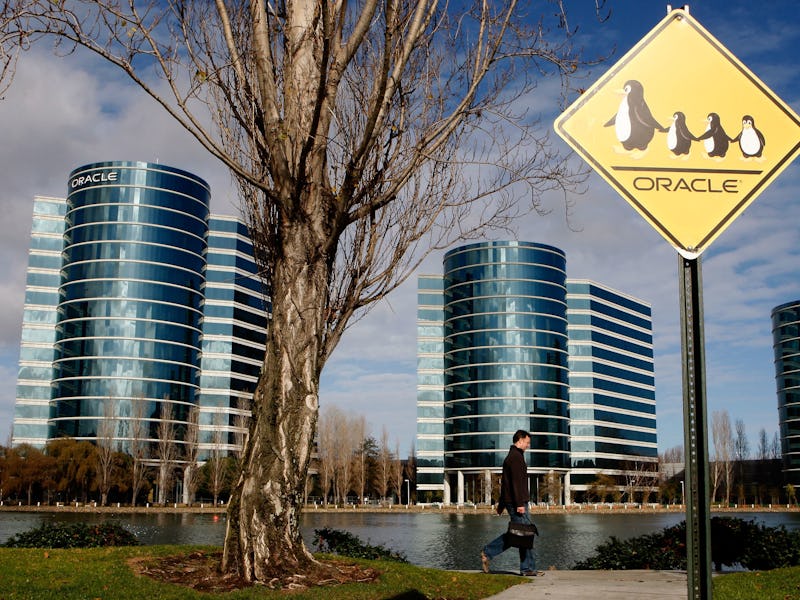3 Big Changes That Could Come if Oracle Wins Its API Lawsuit With Google
Oracle doesn't like the way Android uses its Java APIs.

Those shots you hear being fired right now signal the beginning of Google versus Oracle, round two. Basically, tech giant Oracle is mad at even bigger tech giant Google, claiming that the latter used its Java software without first asking nicely. This anger is taking the form of a massive lawsuit. Google is saying it didn’t do anything untoward because, under the “fair use” clause, the little Java Application Programming Interfaces (APIs) could be re-implemented legally.
Oracle first sued Google about this a few years back. The APIs were initially found not to be patent-protected, but a 2014 retrial declared the opposite, claiming that Google did in fact infringe on Oracle’s right and necessitating this second trial, which brings us back up to today.
This might sound a bit dull, but a win here by Oracle could be a big deal for three main reasons:
1. Big amounts of money could change hands
Oracle, apparently not one to mess around, is suing Google for $9.3 billion. That is a lot even for Google to cough up. The figure represents a combination of damages Oracle believes it’s owed and a cut from the profits Google has supposedly derived from using the API code in its Android devices.
2. Android may have to change the way it’s built
This is potentially the sort of precedent-setting case that determines what rights certain parties have over, not whole technologies, but little bits and pieces within those technologies — which little internal bits of software can be copyrighted and which will be available for anyone to use. Google will need to demonstrate this time around that, rather than simply ripping off the Java APIs, it sufficiently transformed them into a creation all its own, which is ultimately what will hold down the fair use argument. If not, the search giant will be forced to do something about the part of its system and compatible apps that use the contested code. Either that or ask Java for the right to license.
3. Companies beyond Google could be in trouble
Most services offer APIs to build what it is that they offer into third-party apps, operating systems, and websites; you can put a tweet widget or weather widget onto your personal home page, for instance, as long as you’re using them according to the way Twitter or the Weather Channel has asked. Google is using Java APIs not only without permission but in a way that Oracle has decided it doesn’t like. If Google’s claim of “fair use” is finally struck down in court, the precedent could spark similar suits with other tech companies. The legality of private storage companies making use of Amazon’s AWS APIs, for example, has been considered murky.
Wherever the jury lands on Oracle v. Google, we’ll be watching to see how the above three dominos fall shortly after.